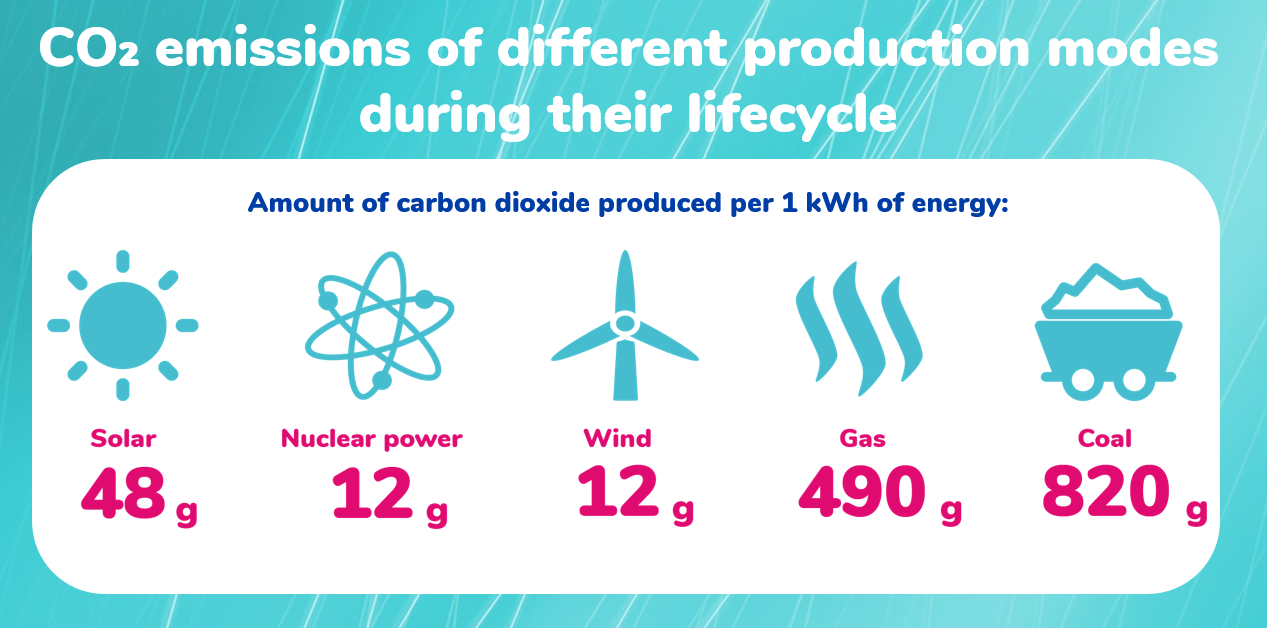Nuclear power and climate change
As a low-emission electricity production method, nuclear power plays a key role in the mitigation of climate change. Nuclear power is used as stable base load power which supports stable electricity production to supplement the variable production of hydropower, wind power, and solar power.
Finland’s National Energy and Climate Plan emphasises the significant role of nuclear power within Finland’s energy system. The plan considers the impact of OL3 and TVO’s analyses on the service life extension and power uprating of OL1 and OL2. The significance of nuclear power remains high within the plan, and the target share of renewable energy is a minimum of 62 per cent of the total final energy consumed. The National Energy and Climate Plan is part of the EU’s energy union governance model – Finland is also preparing a separate, national climate and energystrategy that is expected to be completed during 2025.
Finland aims to promote technology-neutral energy and climate politics within the EU in order to improve the standing of nuclear power as regards the definition of green hydrogen and the taxonomy, for example.
CO₂ emissions of different production modes during their lifecycle
The image below demonstrates the CO₂ emissions produced per 1 kWh of energy for different production modes during their lifecycle. Emissions from nuclear power belong to the lowest of all the technologies.

Nuclear power in Europe
In addition to attitudes towards nuclear power turning more positive within EU institutions, several member states have advanced new nuclear power investments with a stronger focus than before. Forexample, the new nuclear power plant project in the Czech Republic took major steps during 2024. During the year, the support mechanism for the project received approval from the European Commission’s Directorate-General for Competition. Similar support mechanisms consisting of government loans and contracts for difference are also under consideration in other European countries, such as Sweden.
The European Commission emphasise strengthening Europe’s industrial competitiveness and reaching an emissions reduction target of 90 per cent by 2040. The Commission intends to increase investments in clean energy infrastructure and technologies, which include low-carbon technologies, for example. The Commission intends to publish its clean industrial deal in the spring of 2025 – this will also affect the operating environment for nuclear power.
In February 2024, the Commission established a small modular reactors (SMR) industry alliance to
promote the commissioning of such projects. The alliance aims to strengthen supply chains, secure the
availability of competent labour and promote fuel development, among other things.